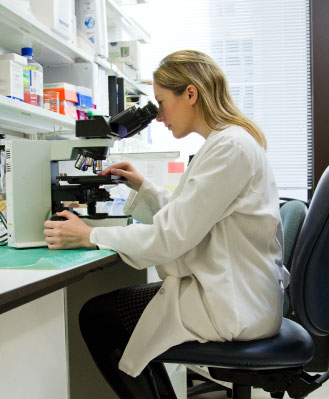Stages of Chronic Kidney Disease
Chronic Kidney Disease (CKD) is produced as a response to damage caused by multiple diseases, which cause loss of kidney function, in addition to certain pre-existing conditions in the patient (diabetes and obesity, among others), as warned by the American organization National Kidney Foundation.
Understanding the different stages and moments of CKD allows the medical professional to provide the patient with a more precise diagnosis. The patient, therefore, will be able to comprehend his/her CKD better, understanding the urgency of getting treatment and the measures that he/she should adopt to prevent the disease from advancing, that which is often times silent and does not cause many symptoms. The performance of routine tests therefore becomes key to acting in time.

Estimated glomerular filtration rate (eGFR), what is it and why is understanding it essential?
eGFR is a measurement obtained through a blood test that allows us to analyze kidney function based on the filtration of serum creatinine, a muscle waste product that is filtered out of the blood thanks to the job performed by the kidneys. When one of these organs is affected, like in CKD, creatinine starts to increase in the patient's blood.
CKD stages based on Glomerular Filtration Rate
We now understand what this measurement means, so we can understand what stage the patient is in based on their blood test results.
As indicated in the chart, there are five stages. After stage two, of course, the patient should be followed up by a doctor so that he/she follows the indications of care strictly to avoid progression of the disease to stages four and five, which are the stages in which a patient will need to search for a kidney transplant or start permanent dialysis.
|
Stages |
Glomerular filtration rate (ml/min/1.73 m2) |
Term |
|
1 |
> 90 |
Normal |
|
2 |
60-89 |
Mild reduction |
|
3 A |
45-59 |
Mild to moderate reduction |
|
3 B |
30-44 |
Moderate to severe reduction |
|
4 |
15-29 |
Severe reduction |
|
5 |
<15 |
Kidney failure |
- Stage one
Although kidney function is considered normal in stage one, if the person has a glomerular filtration rate near 90 ml/min, he/she should prioritize making lifestyle changes so that their situation does not worsen. The organization American Kidney Fundation recommends the following: avoid smoking, follow a balanced diet, maintain an active lifestyle (with a healthy weight) and request regular medical check-ups to monitor blood sugar and blood pressure.
- Stage two
Although kidney function is still considered stable in this stage, it is important for the person to continue making a conscious effort toward a healthier lifestyle, otherwise their situation may worsen. In any case, stage two tells us that there is mild damage to the kidney. A visit with a nephrologist is recommended to understand what is causing the reduced capacity of filtration in these organs.
- Stage three
In stage three of CKD, the kidneys are considered to have poor function. This stage is divided into 3A and 3B, as observed in the chart. Although symptoms are sometimes absent, some of the first signs are related to swollen hands and feet, back pain and a reduced or increase number of times a person urinates, compared to the normal amount. A few complications from this stage are anemias, bone decalcification (hyperphosphatemia) and high blood pressure.
- Stage four
This stage is considered critical, when the patient should prepare for the possibility of dialysis (hemodialysis or peritoneal) or even a kidney transplant if a donor is found. People in stage four should be seeing their nephrologist on a frequent basis and should be taking their prescribed medications.
- Stage five
At this point, it is safe to say that the kidneys are failing or are coming to this point. The accumulation of waste in the blood may make the person feel very ill for different reasons. Apart from the symptoms from the other stages, at this point, the person may experience loss of appetite, nausea, cramps, respiratory problems and problems falling asleep at night. In this stage, the only solution is dialysis or a kidney transplant.
